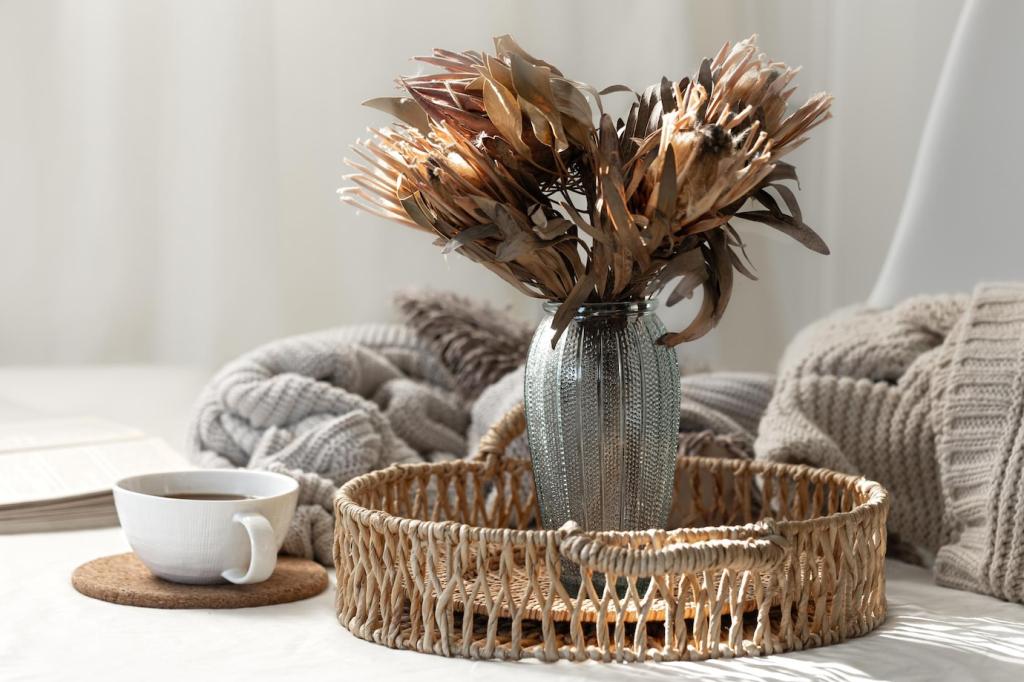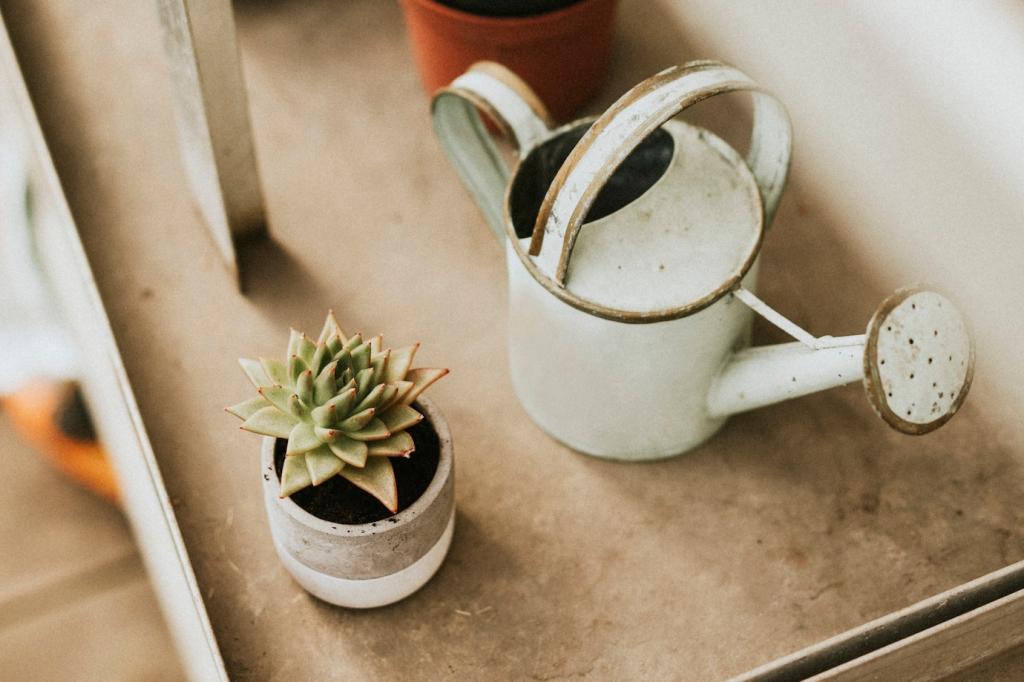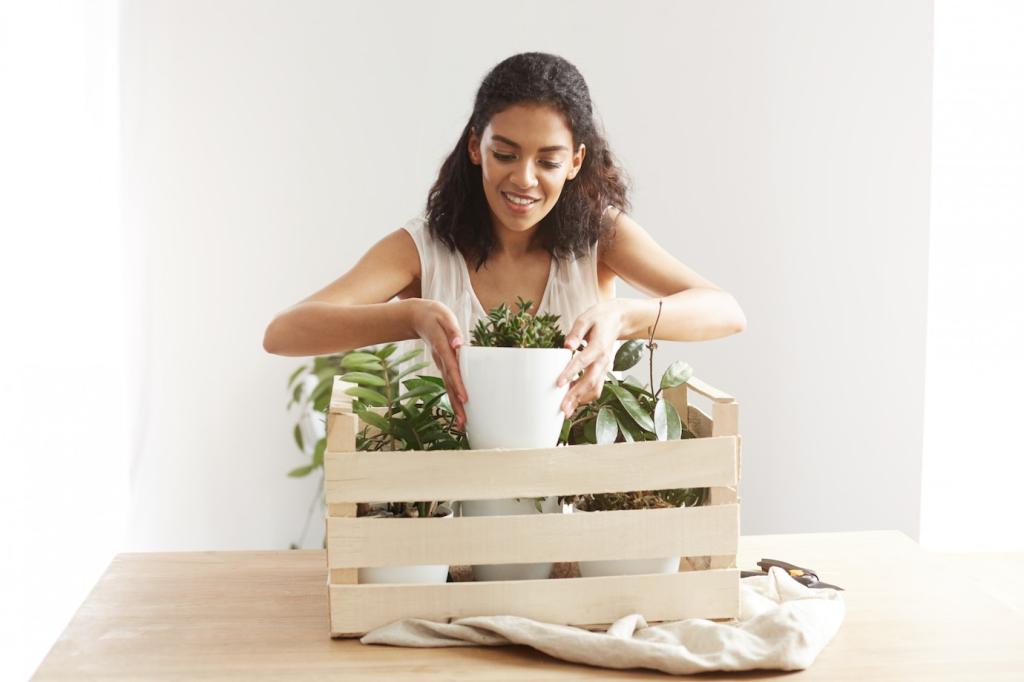Biophilic Design for Healthier Spaces
Calmer minds, clearer focus
Decades of research suggest nature exposure reduces stress and mental fatigue. Roger Ulrich’s classic study found patients with tree views recovered faster, while Attention Restoration Theory explains how soft fascinations in nature replenish focus. Try noticing your pulse after a slow walk among trees.
From hospitals to homes
What hospitals learned about garden views, we can bring home: more daylight, a few resilient plants, and a quiet water sound. A nurse reader told us her balcony planter became a daily reset, easing the shift from urgent pace to restorative breath.
Your story matters
Biophilic design is personal. Which natural element calms you fastest—sunlight, greenery, wood, or water? Tell us in the comments, subscribe for thoughtful prompts, and help shape upcoming guides tailored to your daily rhythms and real-world rooms.
Core Elements of Biophilic Design
Prioritize daylight and support circadian rhythms with warm evening light and brighter, cooler midday tones. Aim for gentle gradients instead of glare. Pair sheer curtains with adjustable task lamps to keep mornings bright, afternoons balanced, and evenings soft enough for easy unwinding.


Core Elements of Biophilic Design
Choose wood, stone, clay, cork, linen, and wool for tactile warmth. Matte finishes reduce glare and feel grounding. Low-VOC paints and natural oils keep air quality kinder. When you touch a solid wood edge, note how the grain invites slower, more mindful movement.
Designing a Healthier Home Room by Room
Bedroom sanctuary
Keep screens out, welcome dawn light with layered shades, and introduce breathable natural fibers. A snake plant or peace lily can add life with minimal fuss. Choose calming hues, hide clutter, and place a plant where you’ll notice it on waking, inviting a slower first breath.
A kitchen that breathes
Grow herbs by the brightest window to combine scent, flavor, and daily care. Use open shelves for bowls in earthy textures. Prioritize ventilation, wipe with unscented cleaners, and add a small bowl of lemons for color, fragrance, and the gentle ritual of slicing freshness into meals.
Work-from-home oasis
Position your desk toward a window or plant-rich corner. Add a leafy backdrop for calls, a wood wrist rest, and a small water feature to hush noise. Schedule micro-breaks to gaze outside, letting soft fascination restore attention and protect your energy curve.

Maya worked late, slept light, and dreaded mornings. She began with seven easy plants, a bamboo shade to soften glare, and a mirror to double daylight. She described her first quiet breakfast by the window as “finally breathing where I live.”
Case Study: A Studio Transformed
A jute rug absorbed echo, a tabletop fountain masked street noise, and a cork board displayed pressed leaves for seasonal change. She shifted her desk toward the view, swapped harsh bulbs for layered lamps, and added a branch-like floor lamp for organic silhouette.
Case Study: A Studio Transformed
How to Get Started This Weekend
Step outside for five minutes and notice light direction. Clear one surface. Place one plant or branch. Adjust one lamp warmer for evening. End with a two-minute breath by the window. Repeat weekly, and let your space grow with your attention.

How to Get Started This Weekend
Buy: one hardy plant, a warm-dim bulb, and a natural fiber textile. Skip: synthetic greenery and overpowering scents. Choose items you will touch daily so biophilic benefits move from decoration into habit and embodied calm.
Sustainability and Ethics in Biophilic Design
01
Source with care
Choose FSC-certified wood, reclaimed materials, and low-VOC finishes. Favor durable pieces over quick trends. When possible, support local makers whose work shortens supply chains and tells a story you will gladly live with for years.
02
Care for living elements
Right plant, right place: match light and watering needs to your home, and avoid invasive species. Learn gentle pruning, use rainwater when available, and share cuttings with neighbors—spreading both greenery and community ties.
03
Grow community green
Join a park cleanup, volunteer in a community garden, or ask your building to create a shared planter. Tell us where you live, subscribe for local ideas, and let’s turn private biophilic wins into public, healthier spaces for everyone.
